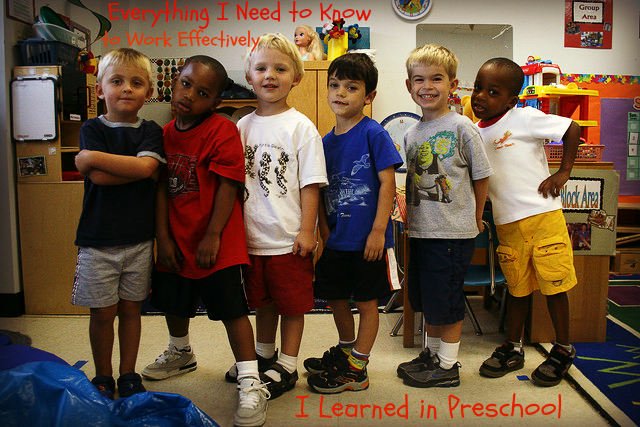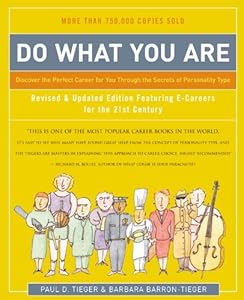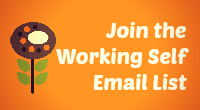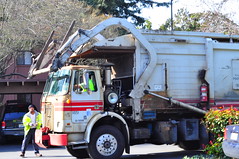One of my former students recently stopped by for a chat. An intelligent, eager woman in her mid-20s, she's moved beyond the wide-eyed optimism typically worn by new graduates.
Too far beyond it.
"How's your job?" I asked.
"It's work," she said. "You know. It pays the bills. I mean, what more can you expect? Besides, it doesn't really matter. It's just work."
My cringe of the century followed.
JUST work?
Not only would I beg to differ on my least feisty day, she crossed my path days after I learned of large-scale, representative research showing how wrong she is.
Poor girl.
I'll spare you that long-winded, hand-flailing, eye-bulging version here. In fact, I'll boil my point down to just four sentences:
Work matters to your overall well-being. Big time. More than anything else in your life.
And your "work health" can be summed up with the answers to just two questions.
Now for Pete's sake read on because this concision thing is killing me!
The Two All-Important Questions
We'll start by unveiling the two questions that not only predict your Career Well-being, but your well-being overall.
(Is it just me or does this feel as tense as a Jerry Springer "is he the daddy?" moment.)
The two all-important questions are:
- Do you like what you do each day?
AND
- At work, are you able to do what you're best at each day?
Notice there's nothing about your boss or your co-workers or your physical office or your hours. According to Brandon Busteed at Gallup, it all comes down to liking what you do and using your strengths. Period.
So if you can "strongly agree" with both of these questions, you're in great stead. Grab some Pirate Booty and get back to work.
If, on the other hand, you only "agree" or are "neutral" or are - duh dum - in the "disagree" camp, it's time to take a good look at your career. Afterall, work is the most important factor affecting your overall well-being.
Career Disproportionately Affects Our Well-Being
Not ready to believe me about the importance of career health to our overall well-being? Can't say I blame you; I am a bit biased.
We'll turn to the good people at Gallup to back me up:
"Gallup finds that Career Well-Being is the most important predictor of well-being across the board. Though not a guarantee, it is likely that someone with high Career Well-Being also has high Social, Financial, Physical, and Community Well-Being. Across every country Gallup surveyed, people said that a good job trumps everything, including health and happiness." - Brandon Busteed of Gallup
These are strong words: Regardless of nation, career matters. More than health or relationships or money!
In fact, "people with high Career Wellbeing are more than twice as likely to be thriving in their lives overall," according to Tom Harter and Jim Rath in their book summarizing the Gallup research, Wellbeing: The Five Essential Elements.
In other words, all my blabbering on about the importance of meaningful work is well-founded. By research!
Amazingly enough, prior to last week, I didn't even know it.
(If you imagine that I was doing back flips when I heard Busteed announce this at a recent conference, your imagination simply isn't wild enough.)
Why Career Well-being Matters So Much
Work affects our well-being for a variety of reasons:
1. We spend a whole lot of time working. About one-third of our lives, in fact.
2. Work spills over into our entire lives:
"Imagine that you have great social relationships, financial security, and good physical health - but you don't like what you do every day. Chances are, much of your social time is spent worrying or complaining about your lousy job. And this causes stress, taking a toll on your physical health. If your Career Wellbeing is low, it's easy to see how it can cause deterioration in other areas over time." - Harter & Rath, Wellbeing: The Five Essential Element
3. Work shapes our identity. So much so that...
"Our wellbeing actually recovers more rapidly from the death of a spouse than it does from a sustained period of unemployment." - Harter & Rath (Graphical evidence of this phenomenon is on Gallup's site)
If You Can't 'Strongly Agree,' You're Not Alone
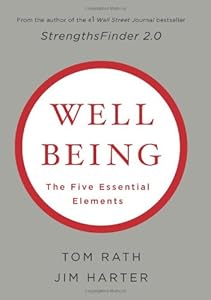
Now that you know how important Career Well-being is, you may be fretting over your initial answers.
Don't worry: if misery loves company, you're all set.
Of the 10,000+ people around the world to whom Gallup posed these questions, only 20% "strongly agreed."
Only 20%!
Considering that Career Well-being is the singlemost important factor in our overall well-being and only 1 in 5 people has Career Well-being, no wonder we're a people obsessed with pursuits of happiness and get-pleasure-fast schemes.
We should stop chasing happiness and start working. Happily.
"Sort Of" Doesn't Count
By the way, if your answers were something like "well, I kind of agree" or "some days I feel like that"? <BZZZZZ> Sorry, no Career Well-being for you.
According to Busteed, a person has to "strongly agree" with those questions EVERY DAY for their overall well-being to be positively impacted. Less frequent simply doesn't cut it.
Does this seem like a ridiculously high standard?
Perhaps, but it's attainable, too.
How to Use These Findings Positively
How do we know it's attainable?
Because if we turn the 20% figure around, it can serve as a guiding beacon for us all:
1 in 5 people has found work that they like and that uses their strengths EVERY DAY.
Think about it: You know, what, about 600 people? (Sorry, your legions of Facebook peeps don't count.) This means you know approximately 120 people doing the sort of work that would make a huge difference in your overall well-being.
There are 120 people you could go out and informational interview.
There are 120 people you could shadow at work.
There are 120 people you could simply spend time around, soaking in their work-fulfilled energy and gaining courage to seek it out for yourself.
In other words, when you get thinking that meaningful, fulfilling work is impossible to find, you're simply not talking to the right people.
We're out there. It just might be hard to catch us.
We're too busy working.


